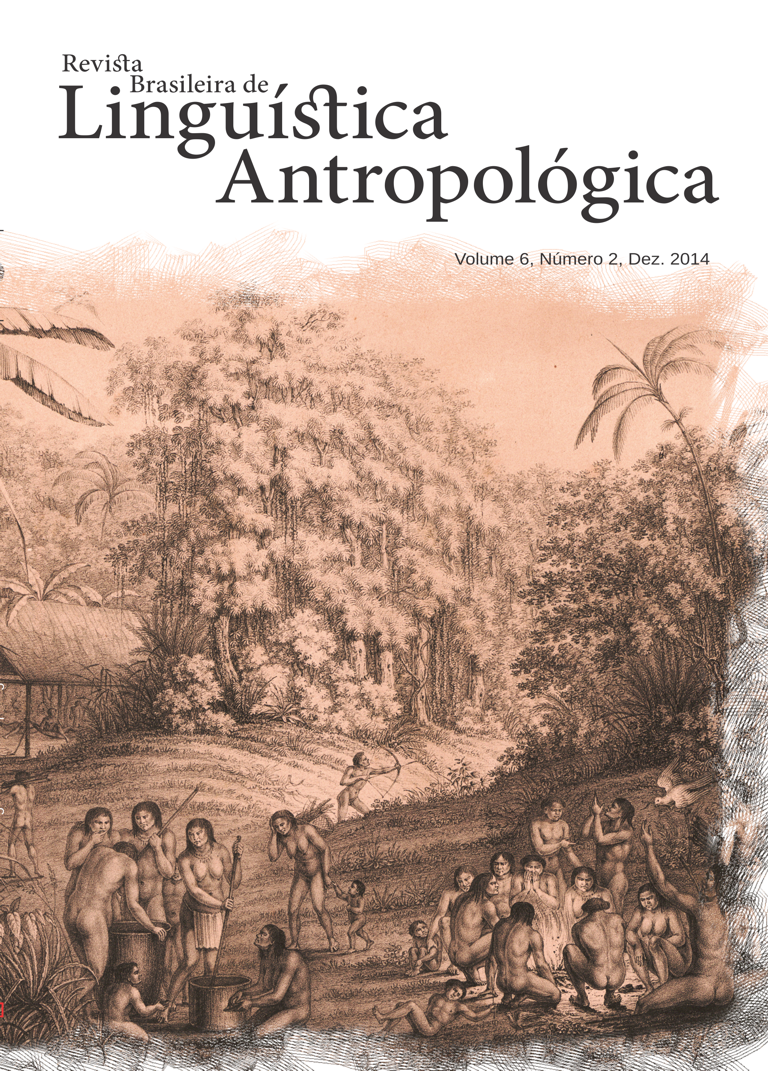El misionero James Barker: ¿El pánini de la lengua yanomami?
DOI:
https://doi.org/10.26512/rbla.v6i2.16284Keywords:
Linguística AntropológicaAbstract
El artículo titulado “Una gramática técnica de la lengua shamatari” constituye un trabajo poco conocido y menos aun aprovechado por los buenos lingüistas contemporáneos que han trabajado con el idioma yanomami ”“el shamatari vendría siendo su variante centralpor tratarse de un estudio casi clandestino: publicado en el Boletín Indigenista Venezolano (XVIII (Enero-Junio de 1979), 15, Caracas). Yo mismo lo subestimé un poco al inicio, por razones más bien formales: mal uso del castellano, una concisión algo críptica, entre otras características atípicas. Sin embargo, más adelante tuve que admitir que en el fondo es una descripción sumamente densa y precisa de varias categorías de la morfosintaxis fundamental de la lengua, lo que en cierto modo me hizo recordar al gran proto-lingüista hindú Pánini.References
Barker, James. 1979. Una gramática técnica de la lengua Shamatari (notas por Estaban Emilio Mosonyi). Boletín Indigenista Venezolano: Tomo XVIII, XVIII (15): 193-226.
Caballero Arias, Hortensia. Los yanomami. Caracas: Fundación el perro y la rana, 2011.
Escobar, Ticio. Misión: etnocidio. Asunción (Paraguay): Comisión de solidaridad con los pueblos indígenas, 1988.
Lizot, Jacques. Introducción a la lengua yanomami. Caracas: Vicariato Apostólico de Puerto Ayacucho- Unicef, 1996.
Makkai, Ádám. Bábel Tornyától a szentlélek kitöltetéséig (Desde la Torre de Babel hasta el descenso del espíritu santo). Új látóhatár (nuevo horizonte). Múnich, 1984.
Mattei Müller, Marie-Claude. Lengua y cultura yanomami. Caracas: Épsilon libros, 2007.
Pike, Kenneth L. Language in relation to a unified theory of the structure of human behaviour.Glendale, California: Summer Institute of Linguistics, 1954.
Yai bädä e tä̃a. En: Nuevo Testamento en yanomamö y castellano. Misión Nuevas Tribus de Venezuela, 1984.
Downloads
Published
Issue
Section
License
Copyright (c) 2015 Revista Brasileira de Linguística Antropológica

This work is licensed under a Creative Commons Attribution 4.0 International License.
Authors who publish in RBLA agree to the following terms:
a) Authors maintain the copyright and grant the journal the right of first publication, and the work is simultaneously licensed under the Creative Commons Attribution License, which allows the sharing of the work with recognition of the authorship of the work and initial publication in this journal.
b) Authors are authorized to assume additional contracts separately, for non-exclusive distribution of the version of the work published in this journal (eg, publish in an institutional repository or as a book chapter), with recognition of authorship and initial publication in this journal.
c) Authors are allowed and encouraged to publish their work online (eg, in institutional repositories or on their personal page) at any point before or during the editorial process, as this can generate productive changes, as well as increase impact and citation of the published work.










